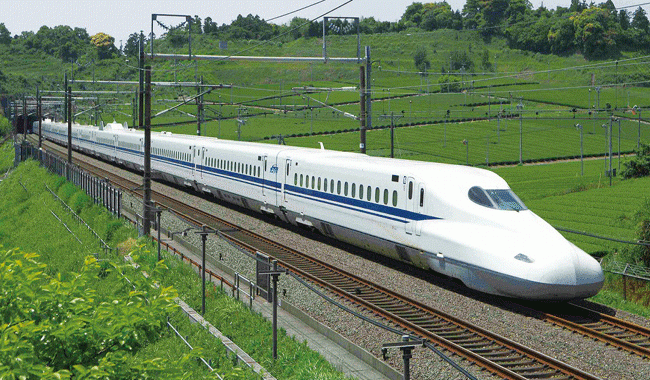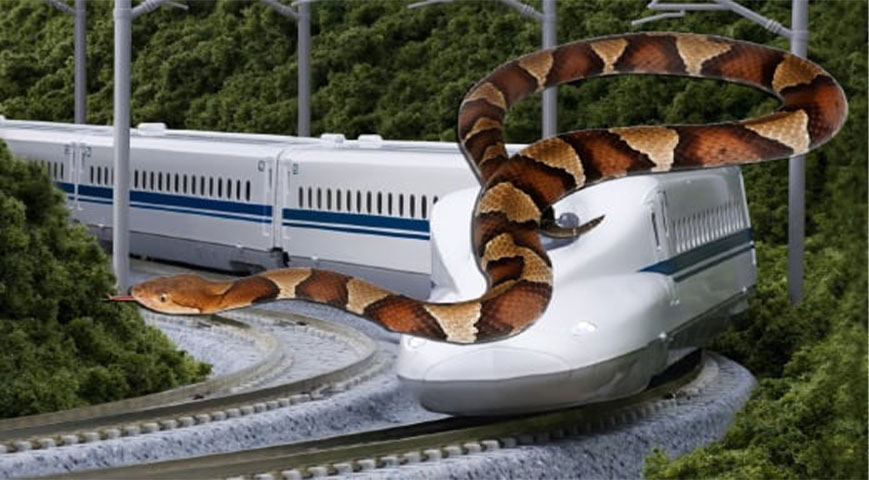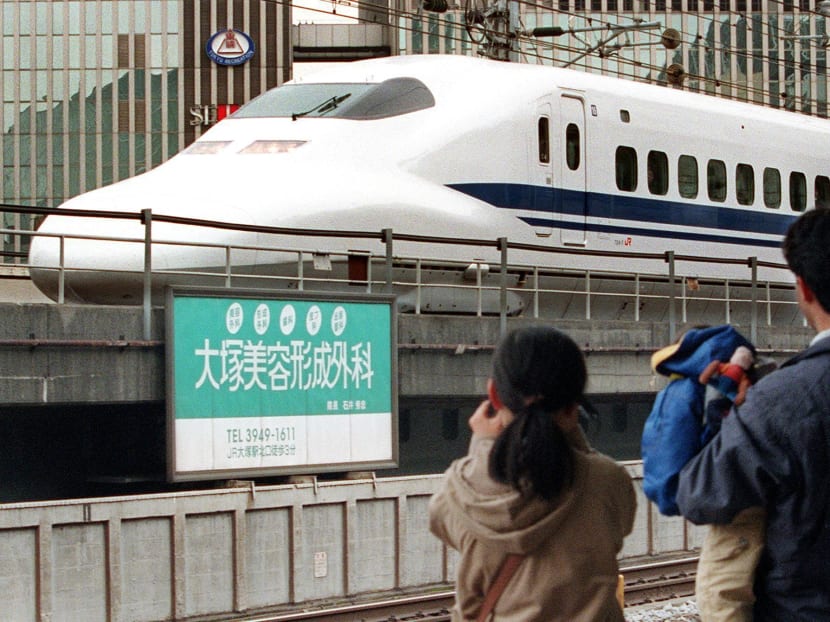Train services were delayed after a 40-centimeter (almost 16-inch) snake was found aboard a train between Nagoya and Tokyo.
A Central Japan Railway Company representative said whether the snake was poisonous or how it arrived on the train was unknown. There were no injuries or fears among passengers.

Shinkansen passengers can bring small dogs, cats, and other animals, including pigeons, on board, but not snakes.
Even slight delays in Japan's much-vaunted bullet trains are rare, and more unusual still are snakes on board holding up the speedy "shinkansen" services.
On Tuesday evening, a passenger alerted security to a 40-centimetre (nearly 16-inch) serpent lurking on a train between Nagoya and Tokyo, resulting in a 17-minute hold-up.

A Central Japan Railway Company spokesman told AFP that it was unclear whether the cold-blooded commuter was venomous or how it ended up on the train. There was no injury or panic among passengers.
Shinkansen customers can bring small dogs, cats and other animals, including pigeons on board -- but not snakes.
"It's difficult to imagine wild snakes somehow climbing onto the train at one of the stations. We have rules against bringing snakes into the shinkansen," the spokesman told AFP.
"But we don't check passengers' baggage," he said.
The train was initially supposed to continue to Osaka, but the firm chose to utilize a different train, resulting in a 17-minute delay.
Patrols by uniformed security personnel on bullet trains were increased following a deadly stabbing on a shinkansen in 2018, which stunned typically ultra-safe Japan.
Additional security was strengthened for the Summer Olympics in 2021 and the Group of Seven summit last year.
According to Japan Railways, the Shinkansen network, which began operations in 1964, has never had an accident that resulted in passenger fatalities or injuries.
The trains can run 285 kilometers (177 miles) per hour and have an average delay of 0.2 minutes.










